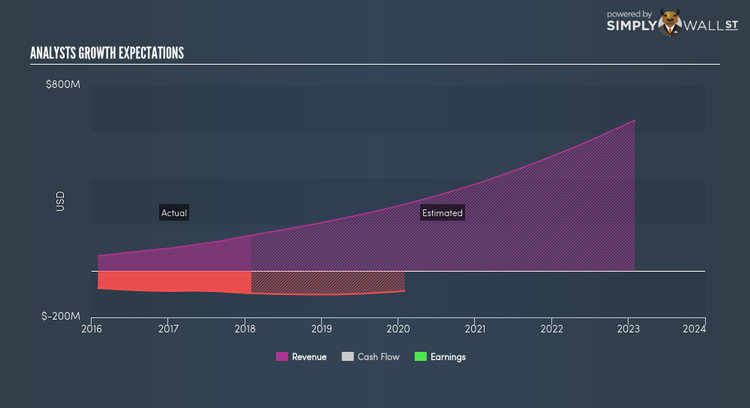What Do MongoDB Inc (NASDAQ:MDB) Insiders Know That You Don’t?

MongoDB, Inc. operates as a general purpose database platform worldwide. MongoDB is one of United States’s some insider buying over the past three months, with insiders investing in more than 4 million shares during this period. Generally, insiders buying more shares in their own firm sends a bullish signal. The MIT Press (1998) published an article showing that stocks following insider buying outperformed the market by 4.5%. But these signals may not be sufficient to gain confidence on whether to invest. I’ve assessed two potential reasons behind the insiders’ latest motivation to buy more shares.
View our latest analysis for MongoDB
Who Are Ramping Up Their Shares?
There were more MongoDB insiders that have bought shares than those that have sold. In total, individual insiders own over 8 million shares in the business, which makes up around 15.62% of total shares outstanding. .
The entity that bought on the open market in the last three months was
Whale Rock Capital Management LLC. Although this is an institutional investor, rather than a company executive or board member, the insights gained from direct access to management as a large investor would make it more well-informed than the average retail investor. In this specific instance, I would classify this investor as a company insider.
Is This Consistent With Future Growth?
On the surface, analysts’ revenue growth projection of 148.22% over the next three years provides a very optimistic outlook for the business which is consistent with the signal company insiders are sending with their net buying activity. Delving deeper into the line items,analysts anticipate a sizeable revenue growth over the next year, which has not been passed down into earnings expectation given its negative growth of -5.17%. This indicates high levels of cost growth compared to revenues, which is typical during a period of investment and growth in the company. This seems to be supported by insiders’ conviction evidenced by their net buying activities. Or else they may simply deem the company as undervalued by the market based on future growth it could produce.
Can Share Price Volatility Explain The Buy?
Another factor we should consider is whether the timing of these insider transactions coincide with any significant share price movements. Volatility provides an opportunity to trade on market inefficiencies when the stock is under-priced compared to the stock’s intrinsic value. Within the past three months, MongoDB’s share price traded at a high of $49.24 and a low of $31.4. This suggests a fairly large volatility with a share price movement of 56.82%. Insiders may deem this relatively meaningful movement as an opportunity to increase their shareholdings.
Next Steps:
MongoDB’s net buying tells us the stock is in favour with some insiders, though negative growth in expected earnings contests this assumption, while a relatively volatile share price could be the motivation to trade. However, while insider transactions could be a helpful signal, it is definitely not sufficient on its own to make an investment decision. I’ve compiled two key aspects you should further examine:
Financial Health: Does MongoDB have a healthy balance sheet? Take a look at our free balance sheet analysis with six simple checks on key factors like leverage and risk.
Other High Quality Alternatives : Are there other high quality stocks you could be holding instead of MongoDB? Explore our interactive list of high quality stocks to get an idea of what else is out there you may be missing!
NB: Figures in this article are calculated using data from the last twelve months, which refer to the 12-month period ending on the last date of the month the financial statement is dated. This may not be consistent with full year annual report figures.
To help readers see pass the short term volatility of the financial market, we aim to bring you a long-term focused research analysis purely driven by fundamental data. Note that our analysis does not factor in the latest price sensitive company announcements.
The author is an independent contributor and at the time of publication had no position in the stocks mentioned.


